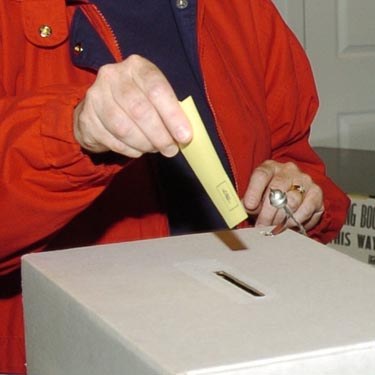
If you look up you may see hundreds of chickens coming home to roost. As many of us have been predicting, including on Labourlist, the introduction of individual voter registration in the UK has been an utter disaster.
As the last few days have shown it is an absolutely chaotic way of preparing an accurate voter register. These flash floods of last minute registration increase the possibility of double-counting and inaccurate or fraudulent entries as well as being incredibly expensive. If we maintained the previous system of registration then our universities would have simply been able to register those eligible to vote en masse in the autumn and avoided the technical meltdown of early June.
Sadly the Electoral Commission and Government are in denial. We have asked 400 cash-strapped local authorities to implement one of the biggest changes to voter registration since the introduction of universal franchise. Some have done really well but most have struggled. For an example of the scale of the problem, look at London: of the 187,000 eligible attainers (16 and 17-year-olds) in the capital only 31,000 were actually registered to vote in 2014. The blunt truth is that the way we have implemented IER in the last two years has made the problem of poor levels of registration worse, not better.
And that’s no surprise because the policy of IER was never considered or thought through properly. Despite all the warm words about introducing a registration system for the 21st century it is still heavily reliant on residency and providing a paper trail. Last year every local council had to write to the much despised “head of household” to confirm who lived at that house. They then had to write to all those listed to confirm if that information was correct!
The only people who benefited from this paper chase were suppliers of official stationery and the Royal Mail. On top of that the whole process had to be repeated every time someone moved. It’s as if every time a person changed jobs they were forced to apply for a new national insurance number and prove they still had the right to work in this country.
It also does nothing to solve the problem of voter fraud – the ostensible reason it was introduced in 2009, in the dying days of the last Labour government. It actually encourages multiple applications and places enormous administrative pressure on local councils. No effort is made to track voters as they move which, needless to say, has more of an impact on some groups than others. It has been estimated that a retired married couple living in the shires and owning their own home has a 90 per cent chance of being on the electoral register. Compare this to a young BME male living in private rented accommodation in London with a 10 per cent chance of being registered. The consequences were inevitable and the register published in December 2015 was recognised as being one of the least accurate in decades. That mattered as it was that register which would form the basis for the forthcoming Parliamentary Boundary Review and the reduction in Parliamentary constituencies from 650 to 600.
So it should be good news that, despite all the computer cock-ups, millions of people have added their names to the electoral register to vote in the forthcoming EU referendum. Yet none of them will influence the outcome of the Boundary Review. Think about that. The Boundary Review is not due to issue its provisional recommendations until the Autumn and it’s not as if these people were not in the country in December, rather they were just not on the electoral register.
At the moment the Government appears to spin on a penny and extend the deadline for voter registration. It is also making a mockery of the forthcoming Parliamentary Boundary Review which is due to issue its first set of proposals in the Autumn. Are we seriously suggesting that none of these millions who signed up in the last six months were not actually resident in the country previously?
There is still time, with political will, for the electorate of June 2016 to ensure that the revised parliamentary constituencies are as accurate as possible. If they chose not to do so then the case for a judicial review is overwhelming.
It is damaging to our democracy and the reputation of local councils. Let’s go back to basics and have a system where it is hard to get on the register but, once on, it is equally hard to come off (apart from through death). Existing IT systems allow the tracking of eligible voters as they move and maintain their democratic rights. It exists in Australia at a fraction of the cost of our muddled version of IER. Let’s hope the Local Government Association can knock some heads together and sort out this mess.
Paul Wheeler writes on local politics and worked on the 1993-95 Parliamentary Boundary Review for the Labour Party.



More from LabourList
Key local council elections to watch for clues on our general election chances
Andy Burnham manifesto: Greater Manchester mayor reveals three key election pledges in bid for third term
‘Labour should grasp the chance to secure EU visa deal for young workers’